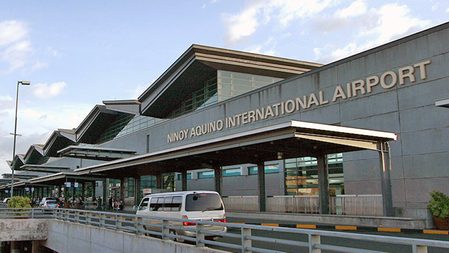MANILA, Philippines – Questions on the validity of the concession deal on the rehabilitation of the Ninoy Aquino International Airport (NAIA) has reached the Supreme Court.
Center for International Law’s Joel Butuyan and Roger Rayel, former undersecretary of the Department of Environment and Natural Resources Antonio La Viña, and law deans Ma. Soledad Deriquito-Mawis and Jose Mari Benjamin Francisco Tirol filed the petition before the High Court on Monday, April 7, over the agreement’s alleged violations of the Constitution and the new Public-Private Partnership (PPP) code.
This comes months after the San Miguel-led New NAIA Infrastructure Corp. (NNIC) took over the country’s main international gateway.
NAIA’s rehabilitation is so far the fastest PPP project approved in the government’s history — the solicited proposal was approved in July 2023 and just eight months later on March 2024, the $3-billion concession agreement has already been awarded to the consortium led by business mogul Ramon Ang’s San Miguel Corporation.
“It would soon become evident just how quickly and easily a PPP Project could be drawn up, approved, peddled, bid out, awarded and a concession agreement for it signed if absolutely none of the Government officials overseeing it cared about following the law or safeguarding the public’s interest,” the petition read.
Petitioners pointed out that the bidding violated the new PPP code, which was signed into law on December 5, 2023 and took effect weeks later on the 20th. They said the Manila International Airport Authority (MIAA) disregarded the advise of the Office of the Solicitor General (OSG) and the Office of the Government Corporate Counsel (OGCC) to comply with the law.
It also went ahead without having clear terms of how NNIC will be compensated from the deal.
The MIAA earns from charging passengers and consumers for the use of its facilities, while the concessionaire is also compensated from these fees. Putting a price on the fees entails public participation but this was skipped, petitioners said.
The Revised Administrative Order No. 1 (RAO1) — which details guidelines for the fees and charges – was only approved in September 2024, when NNIC was already in charge of NAIA. The approved RAO1 failed to address concerns raised by stakeholders and was adopted without any changes to its first draft.
How did the NNIC get the deal if there were requirements that were unmet? It offered the government a sweet deal — the Ang-led firm promised to pay the government a whopping 82.16% of its gross revenue to the government, on top of an upfront payment of P30 billion and a fixed annual payment of P2 billion.
This means that through the deal, the government could earn about P900 billion in its share of revenues over 25 years as the 15-year concession deal has a possible 10-year extension.
Petitioners warned that this could “open the floodgates to an open and institutional connivance between the government and business conglomerates to partner in operating public utilities, government monopolies, and government facilities — not with an eye for ‘[protecting] the public interest by providing affordable, accessible, and efficient public services.'” – Rappler.com
